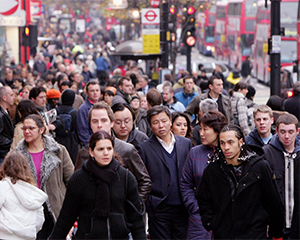London, Dec 1: Immigration into the UK from within the European Union (EU) has officially overtaken the rest of the world, with Romania replacing India at the top of the table in official figures released today.
Romanians accounted for 10 per cent of all immigration in 2015 with 54,000 people coming to live in Britain – more than any other nationality, according to the Office of National Statistics (ONS).
China contributed 44,000 immigrants, followed by Poland with 38,000 tally, and India was third with 36,000.
"Immigration levels are now among the highest estimates recorded – the inflow of EU citizens is also at historically high levels and similar to the inflow of non-EU citizens," said Nicola White, ONS head of international migration statistics.
"These long-term immigration figures run up to the end of June, so it is too early to say what effect, if any, the EU referendum has had on long-term international migration," she said.
Immigration was one of the key issues that is believed to have swung the vote in favour of an exit from the EU in the June 23rd referendum.
Annual net migration to Britain in the 12 months to June 2016, or before the Brexit referendum, continued at a record level of 335,000.
This remains far from the UK government's target to reduce net migration levels to the "tens of thousands".
However, Downing Street insisted Prime Minister Theresa May remains committed to that target.
"She remains absolutely committed to bringing net immigration down to sustainable levels, which means tens of thousands, but we have made clear it will take time," a spokesperson said.
UK Immigration Minister Robert Goodwill hinted at further tightening of immigration measures for non-EU nationals, which will include India, as their hands remain tied on internal European migration until the EU's freedom of movement rules can be addressed once official Brexit negotiations kick off.
"We continue to reform non-EU immigration routes to ensure we attract the best and brightest, who benefit and contribute to this country. But there is more to do as we build an immigration system that delivers the control we need," Goodwill said.
This year's migration was largely fuelled by the highest- ever influx of EU nationals in the 12 months before June's referendum.
Europeans came to Britain for work, from countries like Austria, Belgium, Denmark, Finland, France, Germany, Greece, Italy, Luxembourg, Netherlands, Portugal, the Republic of Ireland, Spain and Sweden.
The overall 650,000 level of immigration for the year until June 2016 was made up of 284,000 EU citizens coming to live and work in Britain, 289,000 coming from outside Europe and 77,000 Britons returning to live in the UK.





Comments
Add new comment